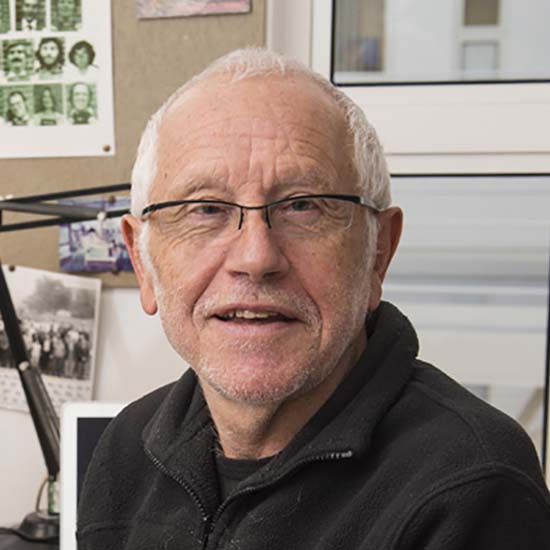Ray Dixon is a microbiologist who studies the influence of bacteria on the nitrogen cycle. Ray and his team aim to increase the natural efficiency of nitrogen-fixing bacteria through genetic engineering, thereby reducing the need for environmentally hazardous nitrogen fertilisers in agriculture.
Nitrogen-fixing bacteria are an essential component of the nitrogen cycle, a biological process that converts inert nitrogen into active molecules for use in plant and animal growth. Ray studies how environmental signals, such as the presence of oxygen, carbon and nitrogen, influence gene expression in nitrogen-fixing bacteria. These signalling mechanisms ensure efficient survival in nitrogen-depleted environments, but also can be potentially manipulated to increase fixed nitrogen supplied to crops.
While nitrogen fertilisers increase crop yields in overworked, nitrogen-depleted soils, they are also a major source of pollution and the greenhouse gas nitrous oxide. The engineering of new nitrogen-fixing bacteria could provide a biologically sustainable source of nitrogen for crops and paves the way for further research to engineer plants that, one day, might be able to fix their own nitrogen from the atmosphere.
Professional position
- John Innes Research Group Leader, Department of Molecular Microbiology, John Innes Centre
Subject groups
-
Molecules of Life
Molecular microbiology

